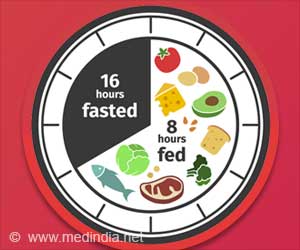- Intermittent fasting does not lead to a poor diet or nutrient deficiency
- There is no evidence that intermittent fasting causes eating disorders
- Intermittent fasting does not negatively impact lean muscle mass or sex hormones
Four popular misconceptions regarding the safety of intermittent fasting have been addressed by experts from the University of Illinois Chicago.
Intermittent fasting is becoming a more common approach to reduce weight without watching calories. Furthermore, extensive studies have demonstrated its safety. Nonetheless, some fallacies regarding fasting have gained popularity among clinicians, journalists, and the general public, including the claims that fasting can result in a poor diet or loss of lean muscle mass, create eating disorders, or reduce sex hormones.
UIC researchers refute these claims in a new commentary published in Nature Reviews Endocrinology (1). They base their results on clinical investigations, some of which they conducted and others performed.
“I’ve been studying intermittent fasting for 20 years, and I’m constantly asked if the diets are safe,” said lead author Krista Varady, a kinesiology and nutrition professor at UIC. “There is so much misinformation out there. However, those views are not based on science; they are simply personal opinions.”
Advertisement
Types of Intermittent Fasting
There are two primary types of intermittent fasting. People who practice alternate-day eating alternate between eating relatively few calories on one day and eating everything they want on the next. People who practice time-restricted eating eat anything they want for four to ten hours each day and then skip meals the rest of the time. Contrary to popular belief, the researchers conclude that both forms are harmless.
Advertisement
Intermittent Fasting Does Not Result in a Poor Diet
According to the experts, studies demonstrate that the intake of sugar, saturated fat, cholesterol, fiber, sodium, and caffeine does not vary while fasting compared to previously. Similarly, the percentage of energy consumed in carbohydrates, protein, and fat remains constant.
Advertisement
Intermittent Fasting Does Not Create Eating Disorders
No research has found that fasting causes people to acquire an eating problem. However, all of the studies excluded participants with a history of eating disorders, and the researchers recommend that those with a history of eating disorders avoid intermittent fasting. They also recommend pediatricians use caution when monitoring obese teenagers who begin fasting, as this group is at greater risk of developing eating disorders.
Intermittent Fasting Does Not Result in an Excessive Loss of Lean Muscle Mass
Studies demonstrate that people lose the same amount of lean muscle mass whether they fast or follow a different diet. In both circumstances, resistance training and increased protein consumption can help to prevent lean muscle loss.
Intermittent Fasting Does Not Influence Sex Hormones
Despite concerns regarding fertility and libido, the researchers reported that fasting does not affect estrogen, testosterone, or other associated hormones.
References:
- Debunking the myths of intermittent fasting
(Varady, K.A., Lin, S., Oddo, V.M. et al. Debunking the myths of intermittent fasting. Nat Rev Endocrinol (2024). https://doi.org/10.1038/s41574-024-01009-4)
Source-Medindia



